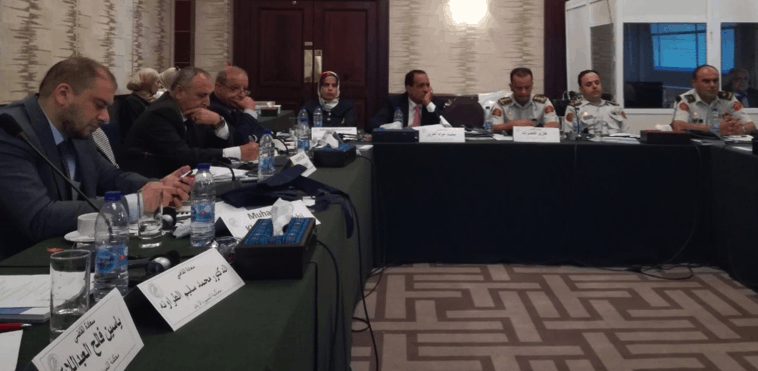Second Workshop for Judges of the Court of Cassation, Military Courts and Ordinary Courts on the Implementation of International Law by National Courts
On 14-15 October 2018, the Max Planck Foundation delivered a two-day workshop on the “Implementation of International law by National Courts”. The workshop was formally inaugurated by HE Judge Naji Saeed al-Zu’bi, Vice-President of the Court of Cassation in Jordan, Dr Mark Erbel, First Political Officer at the Embassy of the Federal Republic of Germany to Jordan and a representative from the Max Planck Foundation.
The workshop was attended by senior and experienced judges of the Court of Cassation, the Technical Office of the Court of Cassation, the High Administrative Court and the Military Court.
The technical content of the workshop focused on the implementation of international law in domestic legal systems by courts and the state of the art in terms of how courts interpret domestic laws in the context of international treaties ratified by the State. The jurisprudence of various national courts was included in the comparative analysis in addition to the jurisprudence of Jordanian courts on the supremacy of international law in the domestic legal system and the interpretation of provisions in international treaties. Presentations were also dedicated to an analysis of the jurisprudence of the European Court of Human Rights on international law to provide a comparison of judicial and interpretative methods.
The workshops with the Court of Cassation and the ordinary courts in Jordan are one component of the Max Planck Foundation’s project on ‘Raising Technical Capacity and Technical Knowledge of Judges of the Constitutional Court (Jordan and Palestine) and Judges of Ordinary Courts in Jordan (2017-2019)’, within the framework of the Foundation’s Project in Jordan and the Foundation’s technical support and assistance to legal institutions in the region. The Project is generously supported by the German Federal Foreign Office.

